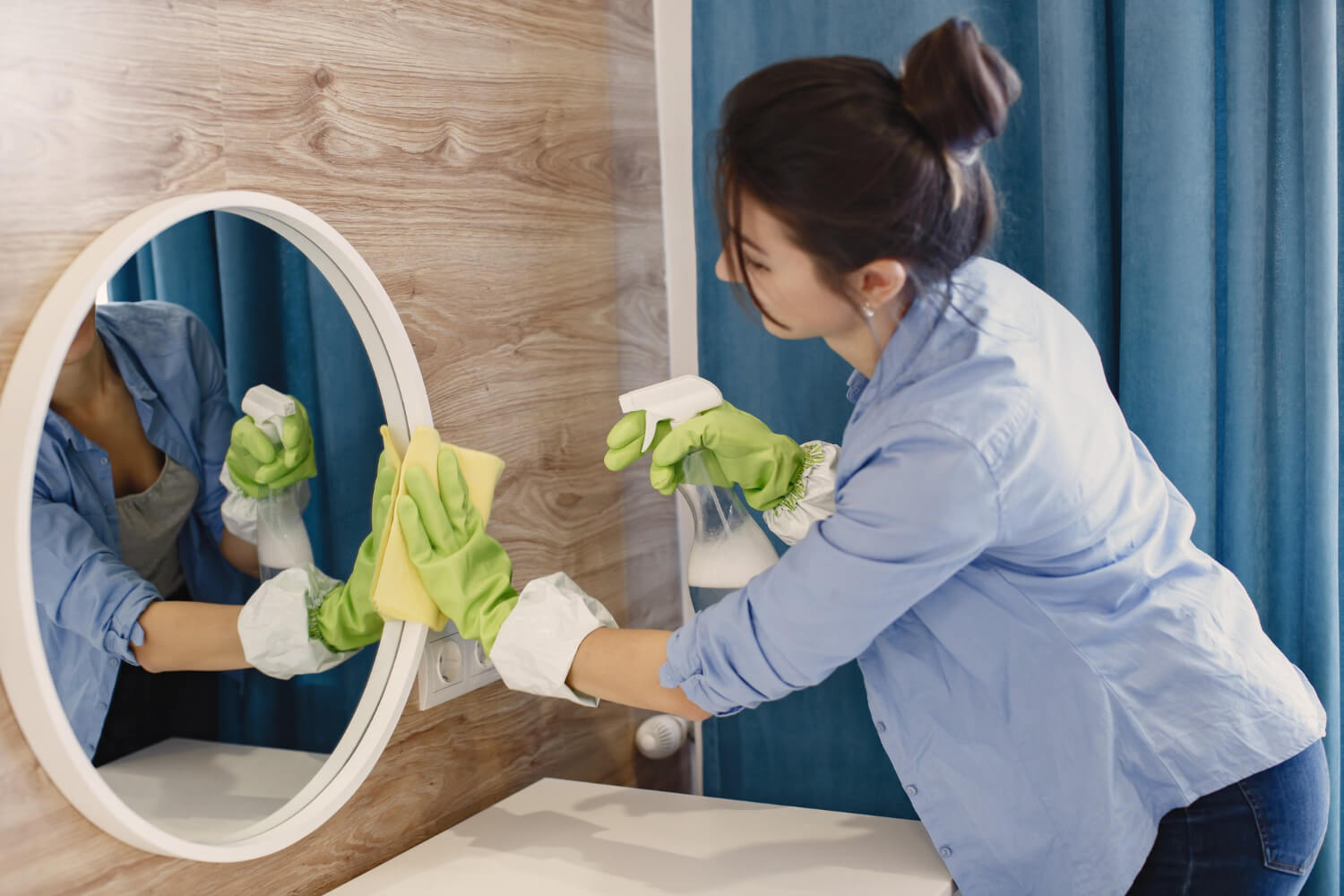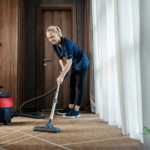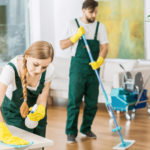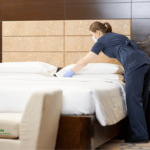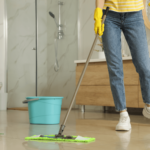Stains in rental properties are like uninvited guests at a party; they appear out of nowhere and can be a hassle to deal with. From a splash of red wine on the carpet to marks left by muddy shoes, these stubborn visitors often leave landlords and tenants scratching their heads. However, fear not! This article will serve as your ultimate guide to identifying, understanding, and eliminating the most common stains found in rental properties.
1. The Usual Suspects: Identifying Common Stains
Rental properties often experience a higher turnover of occupants, leading to a variety of stains. Let’s shed light on the most frequent offenders:
- Coffee and Tea Blunders: These are a common sight in living rooms and dining areas.
- Ink Incidents: Often found in home offices or children’s bedrooms.
- Makeup Mishaps: Regularly spotted in bathrooms and bedrooms.
- Oil and Grease Grievances: Typically emerge in kitchens and dining spaces.
- Pet Puddles and Paw Prints: Common in pet-friendly rentals.
- Red Wine Woes: A classic in entertainment areas.
2. The Science Behind Stain Removal
Understanding the nature of stains is key to tackling them effectively. Different stains require different approaches, depending on their chemical makeup. For example, protein-based stains like blood need cold water, while oil-based stains respond better to warm water and a degreasing agent.
3. DIY Solutions: Your Stain-Busting Arsenal
Armed with everyday household items, you can conquer most stains:
- Baking Soda Bonanza: Ideal for greasy stains.
- Vinegar’s Versatility: Works wonders on coffee and tea marks.
- Hydrogen Peroxide Power: Great for blood and wine stains.
- Dish Soap Dynamism: Effective on a variety of stains, especially grease.
- Salt Solution: Excellent for red wine spills.
4. Commercial Cleaners: When to Bring in the Big Guns
Sometimes, DIY methods just don’t cut it. Here’s where commercial cleaners come into play, offering stronger solutions for stubborn stains. Always read and follow instructions carefully to avoid damaging surfaces.
5. Prevention: Better Than Cure
Implementing preventive measures can save a lot of headaches. Simple steps like using stain repellent sprays on upholstery and carpets, having a strict ‘no shoes’ policy, or placing mats in high traffic areas can significantly reduce the incidence of stains.
6. Understanding Fabrics and Surfaces
Different materials react differently to cleaning agents. Delicate fabrics might require gentler methods, while hard surfaces like tiles may tolerate stronger solutions. Always test a small, inconspicuous area first.
7. Professional Help: When to Call in the Experts
Sometimes, a stain is just too stubborn, or the affected area too large. In these cases, it’s best to call in professional cleaners. They have the expertise and equipment to handle tough stains without causing damage.
Final Thoughts:
Remember, the key to effective stain removal is prompt action and the right technique. Whether it’s a DIY solution or a commercial cleaner, the right approach can make all the difference. And, if in doubt, don’t hesitate to call in professionals, Affordable Cleaning and Gardening Services. Based in Parramatta, our experienced team is well-equipped to handle all your cleaning woes, ensuring your rental property remains pristine and welcoming.
FAQs:
✓What should I do immediately after a spill occurs?
Blot, don’t rub! Gently dab the spill with a clean cloth to absorb as much of the liquid as possible before it sets in.
✓Can I use bleach on all types of stains?
No, bleach can be too harsh for certain fabrics and surfaces. It’s best used on white fabrics and resistant surfaces, and always in a diluted form.
✓Are natural cleaning solutions as effective as commercial ones?
Natural solutions can be highly effective, especially for light to moderate stains. However, for tougher, set-in stains, commercial cleaners might be necessary.
✓How often should I clean upholstery and carpets in a rental property?
Regular cleaning, such as vacuuming, should be done weekly. Deep cleaning or professional cleaning is recommended every 6 to 12 months, or more frequently in high-traffic areas.

